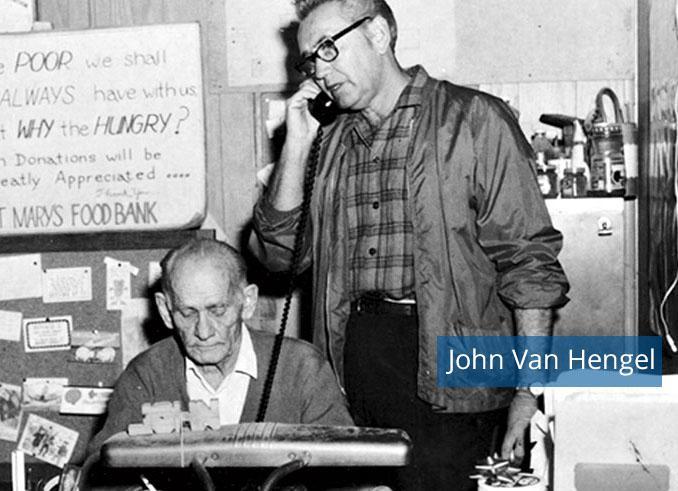A food bank is a civil society organization that collects, sorts, stores, and distributes donated food, clothing, cleaning, and hygiene products to those in need.
Companies and individuals deposit food, clothing, and cleaning products into this “bank,” and those in need withdraw these items from the “bank.”.
Food Banking in Turkey
⦁ One out of every 7 people in Turkey lives below the poverty line.
⦁ 325 thousand tons of food are wasted annually.
⦁ The estimated cost of waste is 414 billion TL.
These figures highlight the crucial need for food banking in Turkey. Moreover, legal incentives facilitate this process.
TİDER Food Banking Network
The Emergence and Logic of Food Banking
The idea of food banking was born in 1967 in Phoenix, Arizona. John van Hengel, a volunteer at a soup kitchen dedicated to helping the poor, encountered a woman one day while distributing food. The woman, who was alone and looking after her children, explained that she relied on usable food items found among the waste of markets and soup kitchens to feed her family.
Van Hengel realized that on one side there were hungry and poor people, and on the other side, there were tons of products being thrown away or destroyed because they were close to their expiration dates or their packaging was damaged. Recognizing this contradiction, van Hengel persuaded local markets and producers to deposit such products into a free distribution depot, thus establishing the first food bank.
Today, there are nearly 30,000 food banks worldwide, distributing 540,000 tons of food to 6.5 million people.


The Global FoodBanking Network
The Global Foodbanking Network (GFN) is an international non-profit organization working to ensure the continued strength and sustainability of food banking in more than 50 countries for a future without hunger and waste. Like TİDER, GFN believes that food banks are the most important tool in solving waste and poverty and can change lives.
GFN’s primary responsibility is to bring food banks together worldwide to create a network where they can share knowledge and experiences. Additionally, GFN supports food banks through capacity-building programs to enable them to continue their paths more strongly and effectively.
We are proud that TİDER is the certified member of this network and the only one in Turkey.
We are proud that TİDER is the certified member of this network and the only one in Turkey. We invite all civil society organizations committed to creating social benefits through food banking and those who want to contribute to its dissemination and proper and transparent implementation in Turkey to join the TİDER Food Banking Network to share knowledge, experience, and essential product donations!
Legal Foundations of Food Banking in Turkey
Food banking is defined within the framework of the law in Turkey by the “Law on the Amendment of the Decree Law on the Production, Consumption, and Inspection of Foods” dated May 27, 2004, as follows:
It is an organization formed by non-profit associations and foundations that collect, store under appropriate conditions, and distribute donated or surplus food supplies, which are suitable for consumption, directly to the poor and those affected by natural disasters through various aid organizations.
With the Law No. 5035, published in the Official Gazette No. 25334 dated January 2, 2004, amendments were made to support food banking activities through tax regulations:
Article 40 of the Income Tax Law: A provision was added stating that the cost of donated food items would be recorded as an expense in determining the tax base of associations and foundations engaged in food banking activities, within the framework of the procedures and principles determined by the Ministry of Finance.
Article 89 of the Income Tax Law: A provision was added allowing deductions from the annual income reported by taxpayers for associations and foundations engaged in food banking activities for the full cost of donated food items, within the framework of the procedures and principles determined by the Ministry of Finance.
Article 17 of the Value Added Tax Law: A provision was added exempting the delivery of donated food items within the scope of food banking, subject to the procedures and principles determined by the Ministry of Finance, from VAT.
Income Tax Circular No. 251 (Official Gazette No: 25409, March 21, 2004): This circular regulates the procedures and principles regarding donations to be made within the scope of food banking, referring to Law No. 5035. According to the circular, donations must be made to an association or foundation with a provision in its statute or charter stating that it will provide food aid to those in need. The circular also specifies issues such as the nature of the donation, the documents to be arranged by donors and recipients, recordkeeping, and reporting on tax returns.
